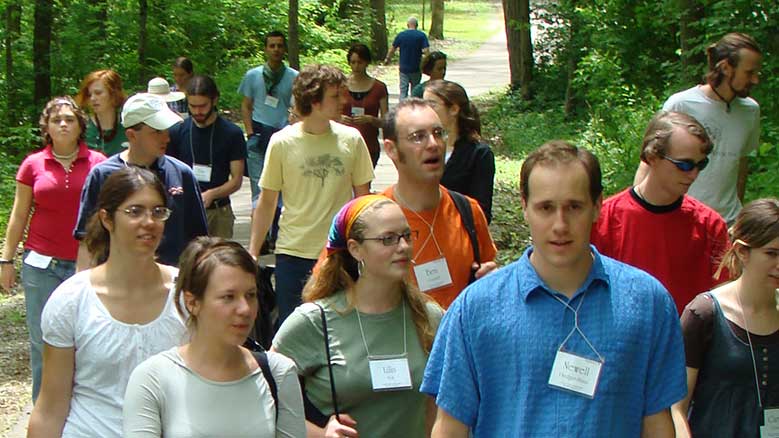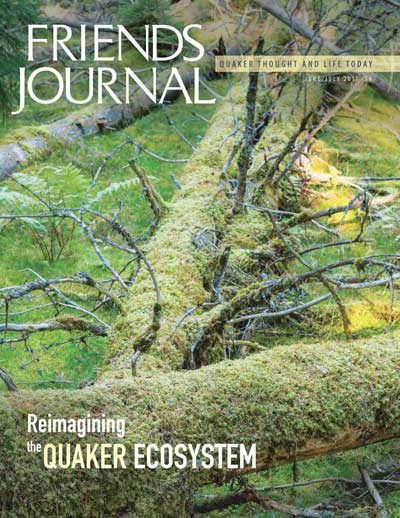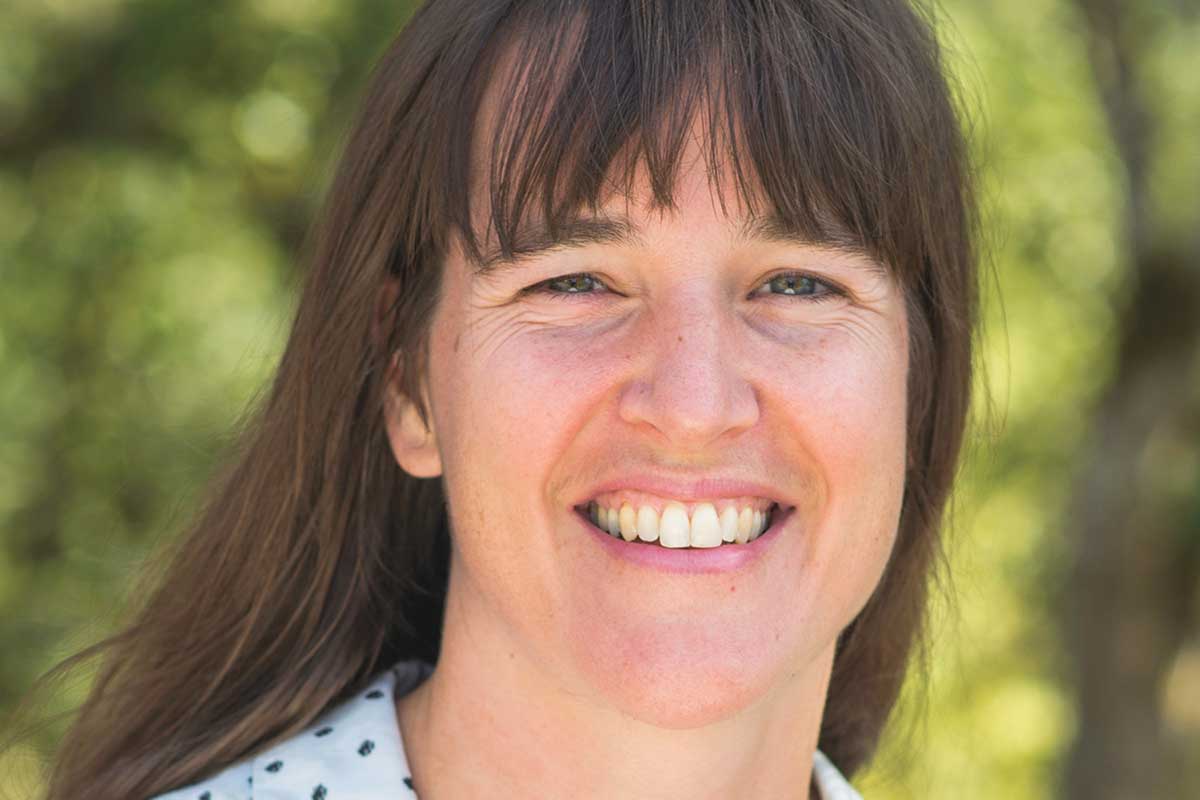
What four words do I not ever want to hear a member of a nominating committee say to me? “We need a YAF.” YAF stands for “young adult Friend” and is usually defined as ages 18 to 35 or 40, depending on the yearly meeting. Yes, I am a Friend under age 35. Yes, age is one type of diversity it’d be good to have on your committee. That doesn’t mean you skip discernment.
I remember a friend answering her phone while we were hanging out. She was angry when she hung up. She had served two terms on a committee and had reached its term limit. She could take a year off from committee service to recharge, or she could move to another committee. The person on the phone had told her, “We need a YAF for ____ committee, so we thought you could do that instead.”
I’ve heard from other folks my age that they feel the same half dozen YAFs are asked to sit on many committees at once. Beyond that being a recipe for burnout, they feel frustrated and tokenized.
Why do efforts at increasing the diversity of a committee easily devolve into tokenization? I believe it is because we have abandoned our theology of gifts. Faith and Practice of Baltimore Yearly Meeting says, “each of us has God-given gifts or talents, which we are obliged to develop and use to the glory of God. . . . We are obliged also to recognize the gifts of other Friends.” In 1 Corinthians 12, Paul asks, “Are all apostles? Are all prophets? Are all teachers? Do all work miracles? Do all have gifts of healing? Do all speak in tongues? Do all interpret?” Hint: the answer he’s pointing toward is “no.”
Faith vs. Practice
When I found Quakers in 2009, I did a lot of reading and made friends with the clerk of a nearby meeting. My understanding of the nominations process was that I should expect someone from nominating committee to approach me at some point, having prayerfully discerned that God has a plan with a part for me in it, based on their recognition of my particular spiritual gifts. This turns out to be more of a theory. We have a disconnect between faith and practice.
Instead, what I found at one meeting was a “committee fair” like the student organization fairs on college campus. At each table, a representative of a committee pitched people passing by on why we should sign up for their committee. At others, I found that emailing a committee resulted in the clerk of the committee approaching and asking, “Hey, can I refer nominating committee to you about my committee?” The optimistic view here is “Oh good, you’re interested in what we’re doing!” The cynical view is “That’ll teach you to speak up.” I do prefer the optimistic view.
In either case, this is not a nominating committee full of people who have put in a particular effort to get to know everyone in the meeting so that they can properly discern who God is calling to what service. This is nominating committee matching up a list of names given to them to a list of job openings.
Last year I asked a Friend on the yearly meeting nominating committee why it was that I hadn’t been tapped until the clerk of the Advancement and Outreach Committee went to them and asked that I be nominated. I’d served on committees in two local meetings over the last five or six years. I thought this made it clear I was willing to serve. The answer was that they typically only bother to ask people who are already involved in some way with the yearly meeting—already on a committee or at least attending annual sessions. I only visited annual sessions that evening because I was coming to my first committee meeting with a yearly meeting level committee. Friends, I’m not sure whether the committee or the committee member is the chicken or the egg, but in any case, there’s a chicken-and-egg problem here. The pool of potential nominees has been artificially restricted to people whose employment situation can support taking several days off from work and paying several hundred dollars for the privilege of doing so. Given all that has been written about my generation’s employment difficulties, I think it should be obvious why the half-dozen YAFs present at YAF business meeting said they feel there are a half-dozen YAFs asked to fill far too many committee slots.
Even without economic barriers, limiting the pool to mostly people who are already serving means never getting a break and being asked to serve more than might be sustainable. That problem isn’t limited demographically. Overwork is a problem.
Getting at the Roots
There are several contributing factors. The most talked about is the pressure to staff an ever-increasing number of committees. Another is about welcome and timing. And then there are the good-intentioned diversity efforts.
Quantity and Quality
Over time, as new concerns arise, meetings add new committees. Those committees hang around. They must all be fully staffed. They are rarely laid down, even as the meeting’s membership and attendance shrink. Instead, individual Friends are asked to serve on two or three committees, to ensure each committee gets its full headcount. This is a recipe for burnout.
I know this is not a unique problem for Baltimore Yearly Meeting Friends. The other BYM (Britain Yearly Meeting) has it too! In his 2014 Swarthmore Lecture, Ben Pink Dandelion discusses many issues facing Quakers today, including recognizing gifts and the difficulty of staffing all open committee slots.
This pressure to come up with a list of names that is possibly longer than the list of adults in active attendance negatively impacts the discernment process. Perhaps a different stage of discernments needs to happen first. What is the meeting being led to do? Is it still being led to all the activities in which it has historically participated? You know the saying: if everything’s a priority, nothing is. And having such a long list of service positions to staff must be overwhelming and exhausting. How much energy does it leave for the important prerequisite of getting to know everyone in the meeting sufficiently well that their gifts can be discerned? I would submit the answer is “not enough,” since the task of finding people often is delegated to the committees themselves.
Welcome and Timing
We hear many jokes about committee service. A card game was made about committee service called “Unable, Unwilling,” where the aim is to dodge committee service. We joke about people being scared away by attempts to put them on a committee after their second visit.
By all means, wait more than two weeks to get someone on a committee. Don’t wait so long, though, that the person frustratedly goes to a committee saying, “Oh for crying out loud, will you just let me help?” Sound funny? I’m sure many meetings have experienced an IT professional saying, “Oh please, just let me fix the email/website/wifi” due to frustration about its insufficiency. Or perhaps their frustration is that they know how to fix the window that won’t stay up. Or they have a leading, and the social witness committee is too busy with other ones to look into it. Or they are led to do a book discussion around Thomas Kelly, but the religious education committee is dealing with curriculum. Yes, this frustration can bubble up as regards many committees.
It’s not uncommon to talk in other groups about how getting people plugged into service is a way to make them feel involved and really part of the community. Similarly, it can be hard for individuals to judge when their contributions will be viewed as coming from an invested part of the community versus an interloper. Letting them know their contributions are wanted and valid is part of welcoming. I submit that after three to six months of regular attendance, a person is likely to feel sufficiently committed to the meeting to entertain the suggestion of service.
If a regular practice was made of meeting with people in this category to discern their spiritual gifts, we might find we have more people willing to serve and a better idea of where their gifts are most needed. There is no reason why clearness committees should be saved only for membership, weddings, and when someone is having a hard time making a major life decision. Get someone from nominating committee (and perhaps one or two others Friends) to sit down with the not-so-newcomer over their favorite hot beverage and start discerning the person’s leadings. Maybe they’re not being called to service yet. Fine. Check back in a year. Maybe they actually have some leadings, though.
If your meeting has such a high rate of growth that sitting down with each new person who has managed to stick around for three months would be burdensome, I salute you and wish to know how you’ve managed that. You could teach the outreach committee of every other meeting a lesson.
Diversity
I was pressured, as a YAF on a committee, to come up with names of other YAFs who could serve on this same committee. I tried to think about who I know whose regular occupations or hobbies suggested they had the talents needed by the committee. My list was far shorter than the list of all Quakers near my age I knew. One Friend told me her concern would be that she and I have the same weaknesses, and so she would not be rounding out the committee’s collection of gifts, but instead contributing to lopsidedness. I conveyed this sense to the clerk of the committee, who suggested I go back and tell her that’s fine since what we really need is a larger YAF presence on the committee, and so her perspective as a young person was enough. I did not do so. I did not wish to insult my friend that way. Being a warm body that has not yet walked this earth 40 years does not trump her gifts.
The same, of course, goes for any other type of diversity. Failing to look beyond someone’s age, race, sexual orientation, or any other demographic category to see their gifts is insulting.
The desire to be more intentional and inclusive about who is serving on committees is a good one. This means doing much more than adding a quota though. Individuals must be treated as individuals. Be ready to name the gifts a candidate brings. That means doing the hard work laid out above to really get to know people and their gifts.
I think we’re up to it.




Very good article. Thank you. With any particular identity that Friends want to see more of at Meetings and in our faith and action, we seem to want new people without actually wanting to be impacted by difference or changing to actually be more welcoming. We need to reflect on our actual “openness and understanding in what we’re unfamiliar with”. We need to be Friendly with being uncomfortable. Always sticking with what’s comfortable is really unQuakerlike as well as a recipe for actively reducing new members. Thanks again for the great article.
A thought provoking article. Thank you Mackenzie! And a couple of those provoked thoughts. One tactical and one more strategic.
The tactical one is about naming things. Our rural Lopez Island Washington Friends Meeting is relatively new and a few years back we had the luxury of creating and naming committees from scratch. And we gave those names some discernment as we wanted the name to help remind us what the committee was actually about. So good old M&O (Ministry and Oversight) we named the “Spiritual Life Committee.” And Nominating we named, and to one of the themes you explore here, the “Gifts and Talents Committee.” Does the name solve all problems? Of course not. Do we now perfectly discern gifts and place friends in the perfect role … ummm, no. But I will say that being more intentional about the naming of things does provide us with a touchstone to come back to when we struggle. And it is a way of being intentional and public about what our current hope and charge is for that committee — is the committee focusing on the mission that the name proclaims?
The second more strategic thought is similar, one about mission and purpose, but at a broader level. In what might come as a surprise to some friends, the Religious Society of Friends does not exist to provide friends with committees that they can serve on and/or struggle to fill. The committees are absolutely not the end, but of course a means to the end. But we seem to continually forget that. We forget that in what we name our committees. We forget that in how we staff our committees. We forget that when we never lay down committees or bring new ones to life.
To my sense, if we could recapture the deeper sense of purpose and prophetical calling for the Religious Society of Friends, or as I like to refer to it, The Quaker Movement, then what committees we need, what we name them and task them with, what has served but now needs to be laid down, what does the movement need at this time and requires us to bring to life would become much, much clearer. If you know your purpose and why it is important, then organizing to fulfill that purpose becomes pretty straightforward, and the energy to do those necessary things rises up.
So to what is it that we are called to Friends? Why does the Quaker Movement exist in today’s world? How can we organize ourselves to move this movement forward with joy and love and impact?
Again, thank you Mackenzie for your faithfulness here in sharing your thoughts and experience.
If your intention was to stimulate thought about what gifts one has and how to use them, you were successful with me. I hope others will be similarly inspired. I remember using these considerations when I served on a nominating committee in the past, but I haven’t practiced much discernment about my roles since then. Thanks for reminding me of the essence of committee work.